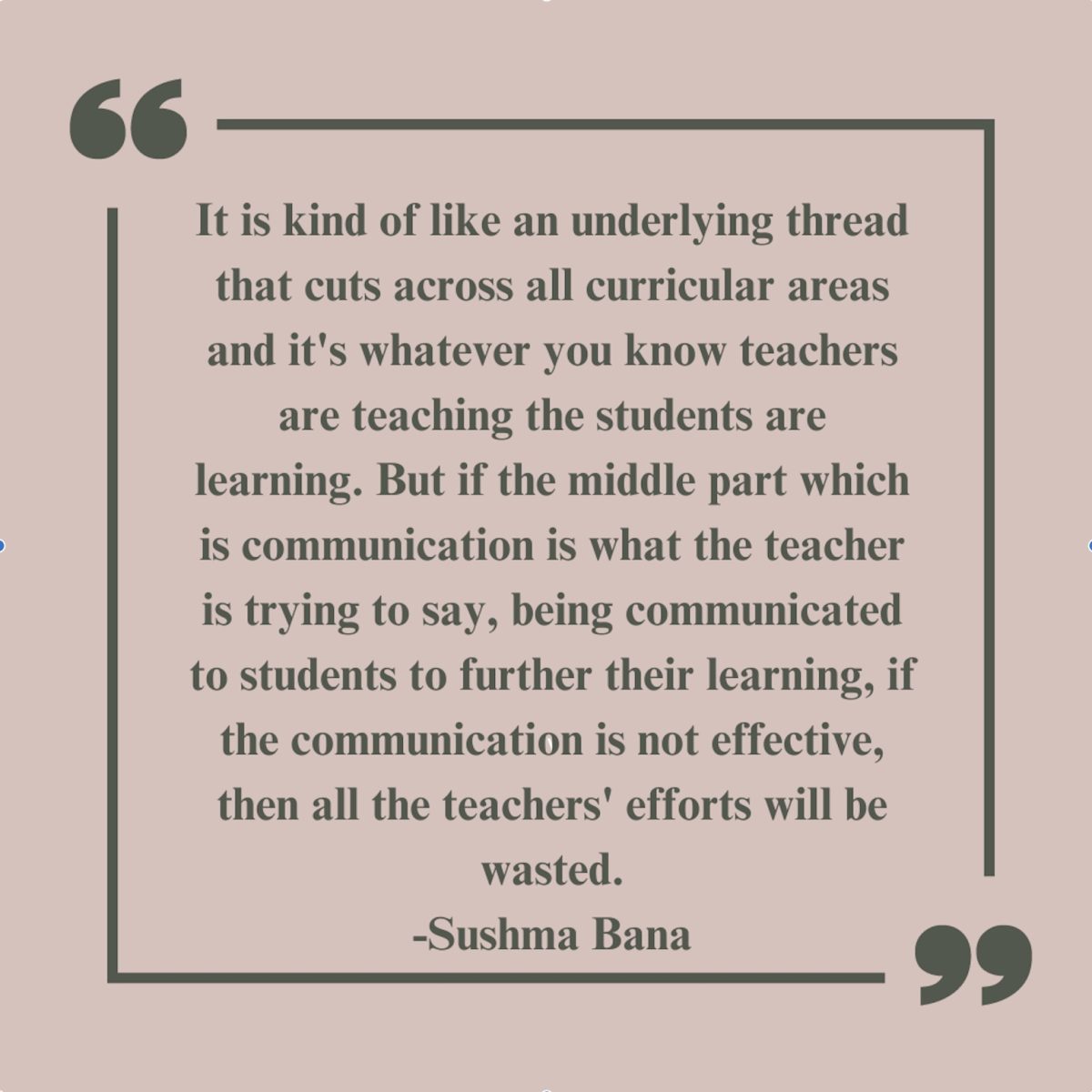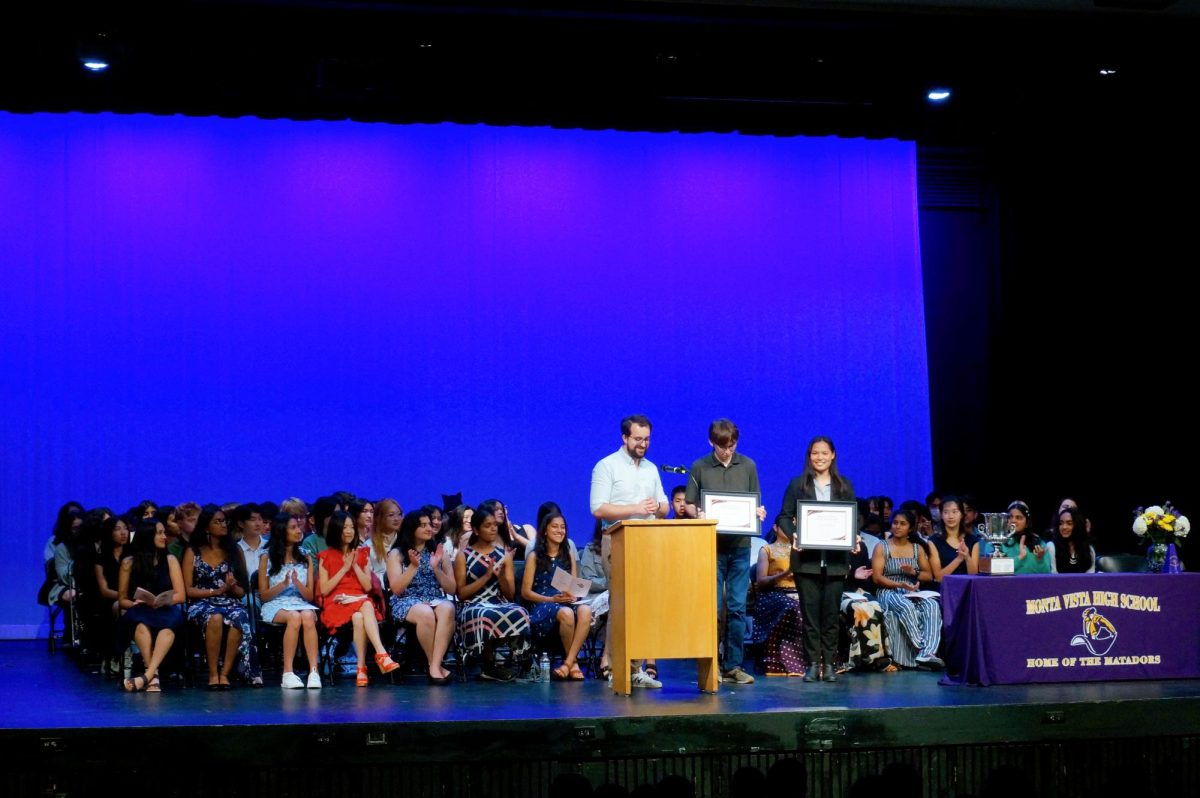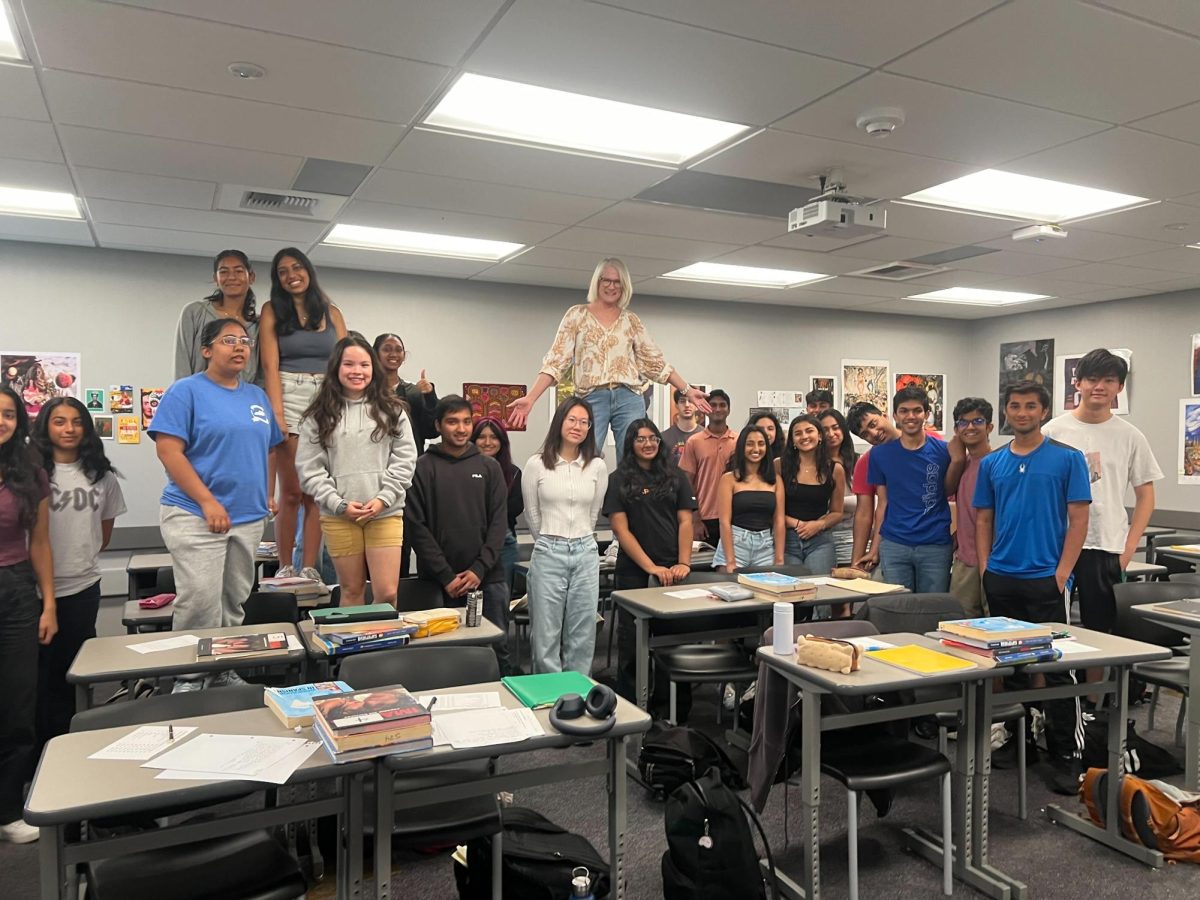Students are mentored by their parents at home, but how many parents actually teach their children at school?
At MVHS, some teachers have had the experience of teaching their own children –– like math teacher Martin Jennings who taught precalculus to two of his children and is currently teaching another.
Jennings enjoys being able to teach his children.
“My kid would come to me and say, ‘Dad, how do we do this?’, and I can say, ‘We just covered that in class today!’ ” Jennings said.
For Jennings, being able to teach his own children ensures that he can check their comprehension and performance. As a parent, Jennings believes that knowing exactly what his children are learning can enable him to help them with the course. He prefers teaching his children his own methods. This way, any possible confusion or discrepancy can be eliminated.
While Jennings teaches his own kids, he instructs them as he would any other student.
“I want to make sure that everybody gets a fair shot,” Jennings said. “When they raise their hands and have something to share with the class, I want everyone to feel like that.”
Jennings strives to give all of his students equal opportunities to participate and volunteer in class. The presence of his children does not determine how he organizes and teaches that particular period.
This experience is shared by another teacher at MVHS. English teacher, David Clarke, taught his son two years ago in AP Literature.
“It was probably worse for him than it was for me. As far as I was concerned, he was just another student,” Clarke said. “I knew that he was my kid but I didn’t have a problem with that.”
Clarke described that his son seemed to not know whether to treat him as a parent or as a teacher throughout the year. In previous years, Clarke’s son would frequently ask him interpretive or contextual questions. However, after becoming Clarke‘s student, his son seldom asked any questions at all.
“To some degree, [my son] had more access to me as a resource,” Clarke said. “But really what it amounted to was that I was always available at lunch, brunch, after school to talk to students, so the amount of time I spent talking to my son was really no different than the amount of time I spent talking to my other students.”
Clarke explained that it was a difficult transition for his son to make, and a strange experience. Although at home and in many other classes, his son would often be talkative and social, in Clarke’s class, he hardly spoke a word, and scarcely participated.
Neither Jennings nor Clarke made the explicit request of teaching their own kids. For both, their classes simply fitted best in their children’s particular schedules.
“I certainly never felt like I was in the position to request [my son] in my class,” Clarke said. “It was basically random as far as that went. It turned out that given his schedule and my schedule, he just had to be in my class.”
Jennings was in a similar position. When all three of his children decided to take precalculus one after another, it happened to be that the class he taught was the one that worked best for their schedules in the school year.
“At the end of the school year before the upcoming year, I asked [my children] how they felt about being in the class that I am a teacher of,” Jennings said. “And then however that works out in their schedule, I’m happy to leave it.”
“I really like it better this way,” junior Christina Jennings said. “The class feels just like any other normal class –– it’s not like my dad would give me tips on his tests –– but I feel like I can always get help.”
Being taught by Jennings at school makes it easier for Christina to ask for help outside of class, since she already knows the materials covered and the expectations her dad has for the course. She described that Jennings makes his role as a teacher, and not a dad, very obvious at school, so she knows not to treat him the same way as she does at home.
Students treat the subject of teachers teaching their own children with controversy.
“Kids can be able to ask their [parents] about a problem and how to do well in the class more easily. It’s unfair,” sophomore Jason Lu said.
Lu is concerned that teachers may grade their own children more leniently, and give them more help, for these students are able to access their parents much more often than others can.
“I personally think it’s not that bad,” junior Rachel Wu said. “Sometimes, teachers are even more strict with their own kids.”
Wu believes most teachers would grade their own children harder than they grade other students because they know their children’s potential. According to Wu, the majority of the teachers are professionals and they will do whatever it takes to be fair.
“I enjoy having my kids in my class,” Jennings said. “I really consider it a blessing, just because I get to see what they are as students and I get to help them to learn what I think they ought to learn. As a dad, that’s just so important for me.”





















